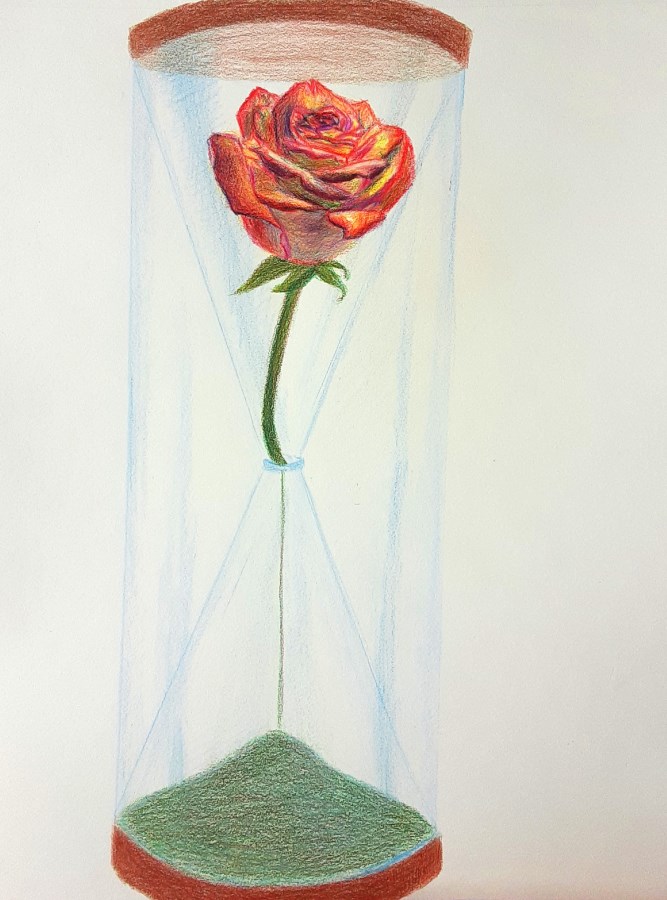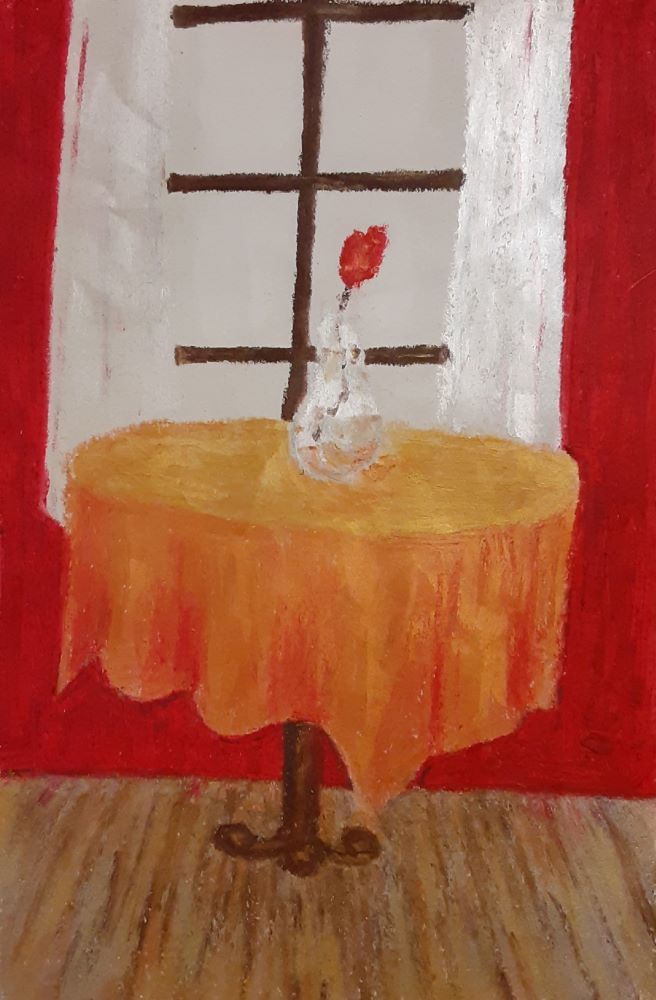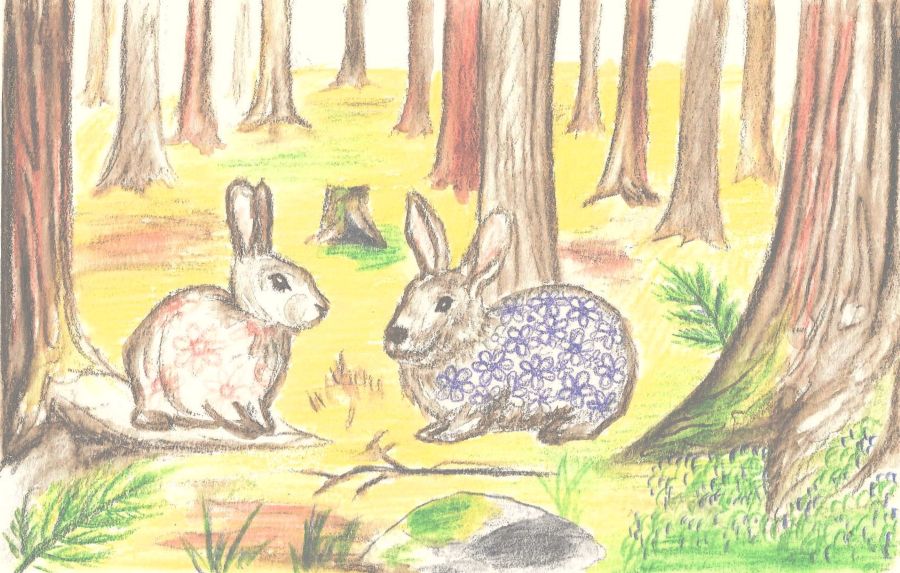It sometimes seems like poets are obsessed with roses. They appear in so many love poems and seem to be able to imply everything from the radiance of youth and innocence to the foreboding of death and decay. They are used so often perhaps as to have lost some of the impact of their image, and a modern reader has encountered the rose in poetry often enough to quickly attach the darker implications immediately when a rose is mentioned.
A red, red rose is a simple love poem, in the genre of ‘rose poems’ but without as much emphasis on fading beauty. The love in the poem is never in peril. In fact, it is the only thing not in peril: the rest of life and the earth certainly are.
Knowing how rose poems go, there is nothing like the mention of a newly sprung rose to conjure images of impending decay and death. However that is not the slant of this image. The fading beauty of the rose is not particularly relevant to the poem. There is something indelible in the rose’s beauty, perhaps expressed by the repetition of “red”. I like to think that the depth of the shade, the pure shock of it can only be expressed with this simple yet emphatic repetition.
The progression of images in the poem is humorous in their escalation. The red rose and the sweet melody are simple and lovely. The lover’s claim that he will love his bonnie lass until the seas run dry is dramatic, but not an unheard-of sentiment. Then, we proceed to the much wilder apocalyptic image of rocks melting in the sun. The shock value of this amongst the sweet and simple images of the poem is pretty sharp. Then we move back to a more conventional sands-of-time image.
I think it is funny how the overall simplicity of the poem can cloak this surreal image and wrap it in swaths of gentleness. We end up with two different promises seemingly:
1. I will love you until death, i.e. while the sands of life shall run
2. I will love you until the sun evaporates the ocean and melts the earth.
Perhaps by anchoring the love to earthly elements instead of just to time, the message ends up being that nothing physical on earth can change the poet’s feeling of love, and neither can anything happen in time to change it besides the sand running out. While rocks remain solid and the oceans carry on in their vast splendor, the poet’s love will endure.
Ultimately this poem ends up subverting the common use of a rose as a symbol of fleeting youth. A rose is perishable, yes, but apparently so are rocks, so in the grand scheme of the world there is nothing more temporary about a rose than there is about anything else.



